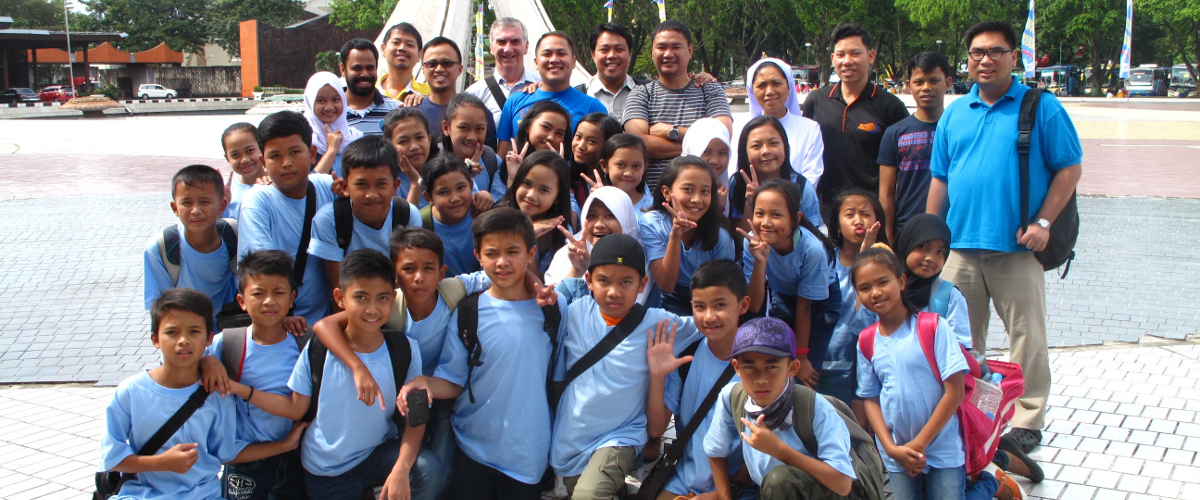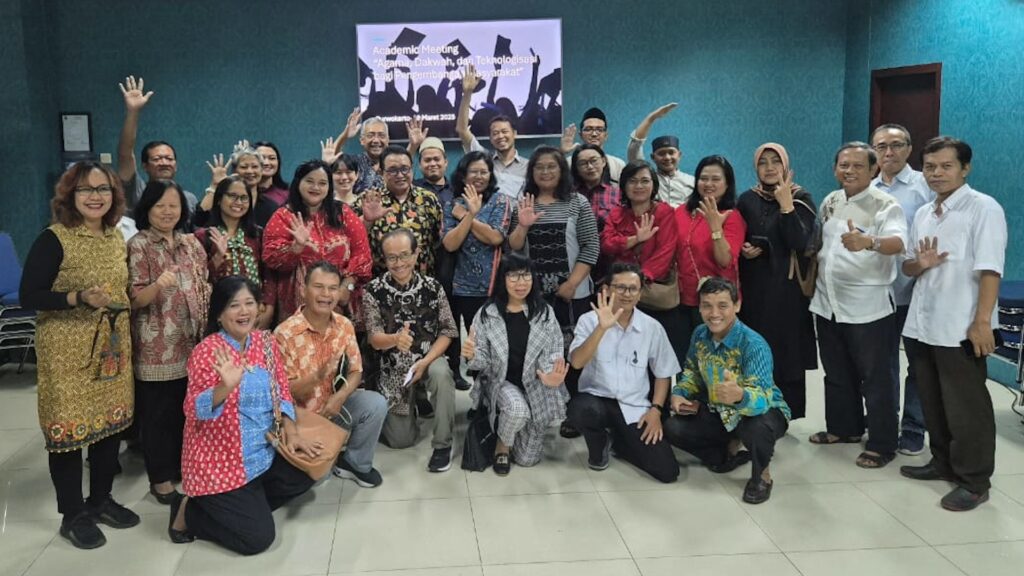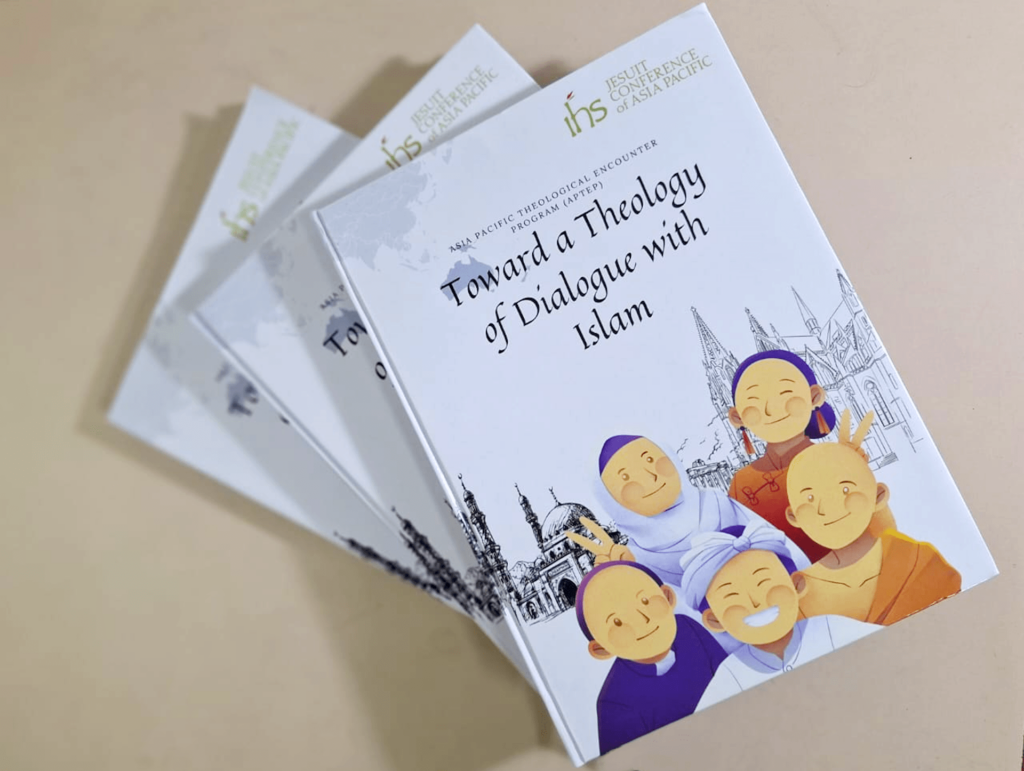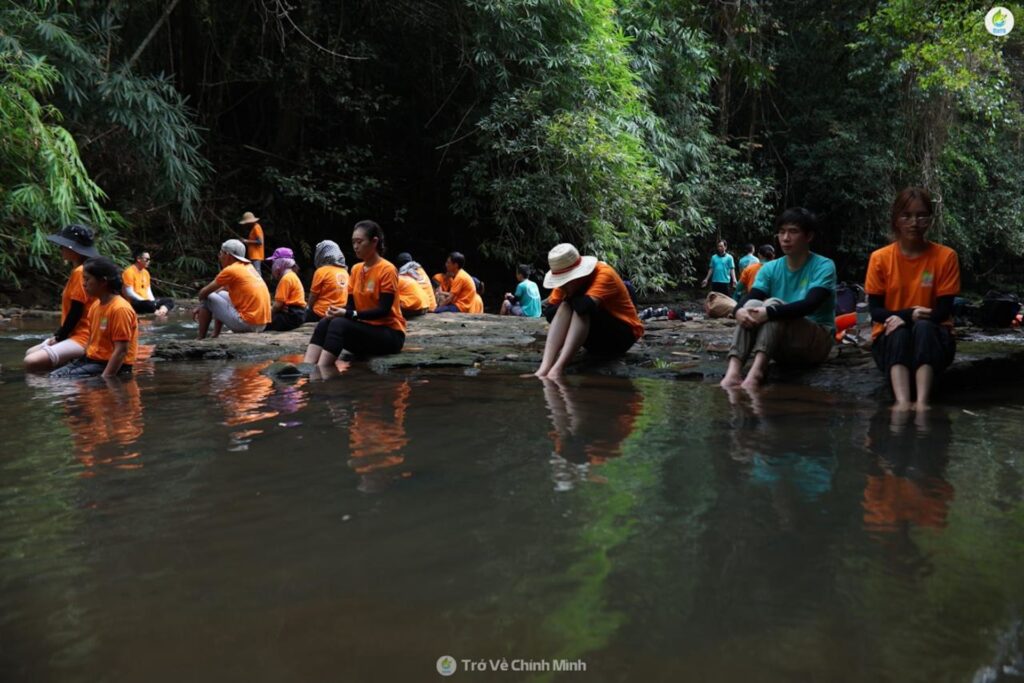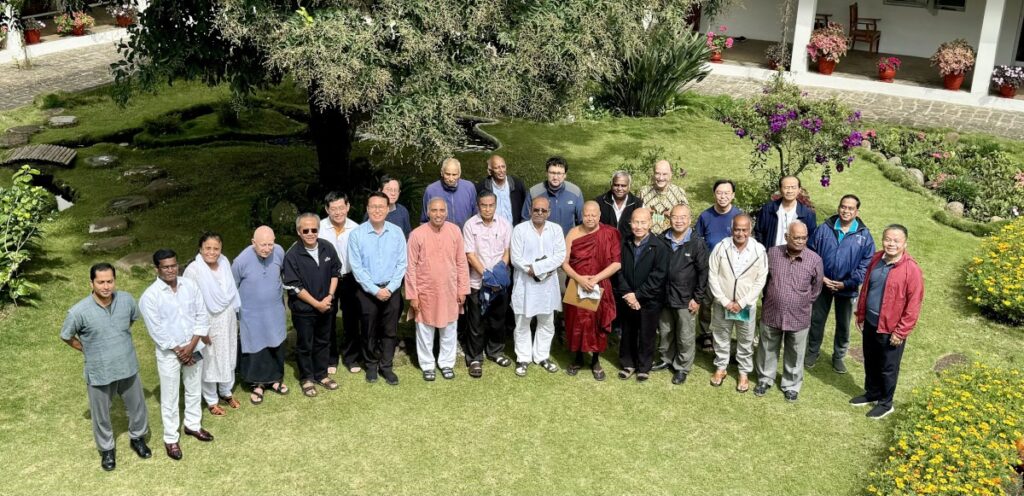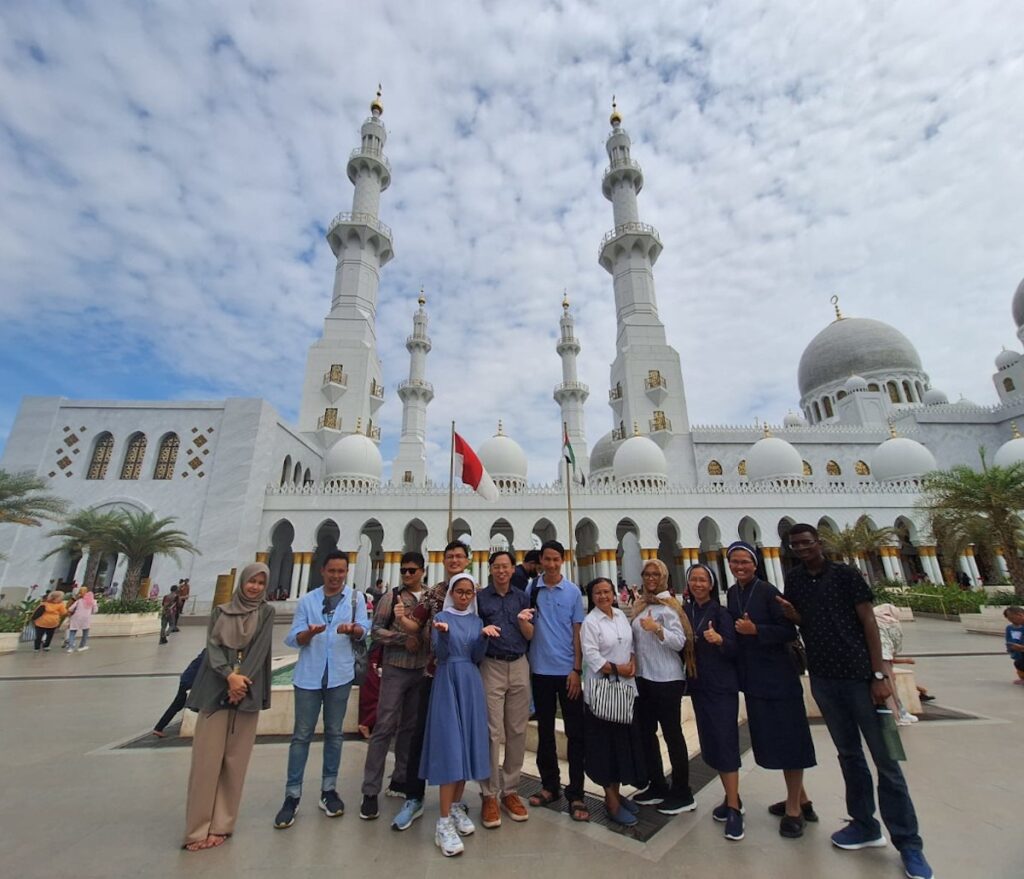Sri Lankan Jesuit Scholastic Anthony Prathap Raj participated in the recently concluded Asia Pacific Theological Encounter Programme in Indonesia. Now back in the Philippines where he is studying theology at the Loyola School of Theology, he shared this reflection of his one-month immersion experience of Islam with us.
As a Jesuit scholastic rooted in Ignatian Spirituality, I went to Indonesia ready to see God in every encounter I had with our Muslim brethren, and open for change and transformation.
I spent one month participating in the Asia Pacific Theological Encounter Programme (APTEP), which prepares Jesuit scholastics to respond for inter-religious dialogue in their respective countries. The programme prepared us on two levels. The first level taught a basic understanding of the Islamic religion that prepared us to appreciate the exposure that we would have and broadened our horizons by erasing our biases about Islam. The second level deepened through hands on experience our knowledge of Islam.
In his book “Jesus Symbol of God”, Roger Haight talks about how signs and symbols can lead to the deeper reality. I witnessed that in Indonesia where there are many religions carrying their signs and symbols pointing towards a greater truth. It was an eye opener for me to see how Islam, though a majority religion in Indonesia, accepts and accommodates all other religious faiths and their symbols.
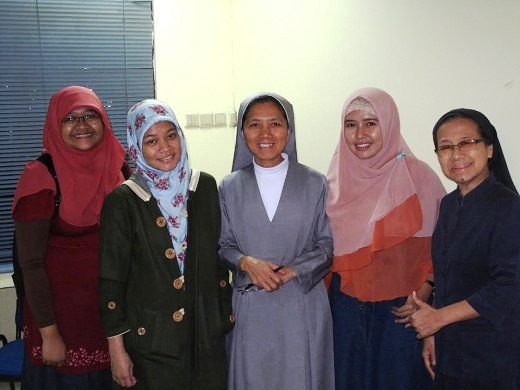
I am motivated by Indonesia’s concept of pluralism based on the Pancasila (justice, unity, social justice, belief in one God, democracy). In my country, many religious groups are divided because of their religion and this division disturbs the peace and harmony of the country.
This was the starting point of a change in my stereotype of Islam that has been in me for a long time due to the influence of media that portrays Islam as a dangerous religion, whose men are violent, conservative, and promoters of war.
APTEP is a wonderful programme with Muslims. I uncovered the biases that were obstacles for me to move with Muslims, and this realization helped me to connect with the Muslim students I met at Muslim boarding schools and the Islamic university.
I was able to see the good in Muslim religious values and way of life. Above all their way of life impelled me to incorporate certain methods of prayer into my life. The Muslim practice of praying five times a day was a lesson for me. As a religious, I felt guilty, and asked myself – How much time do I give to my prayer life? Am I pleased with the Jesuit notion of “work is prayer”? Do I invest quality time in prayer? These disturbing questions haunted me when I saw the young Muslim people praying.
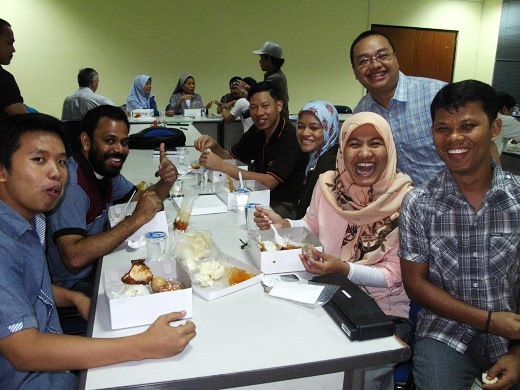
The encounters with Islamic students and the faith sharing led me to see that although religions have different ideological bases that are supported by doctrines and dogmas, love plays a vital role. Our sharing in the beginning was limited to our respective religious faiths and their similarities and differences, but eventually the focus shifted and we shared our personal accounts and struggles.
Our doctrines and dogmas must promote faith that leads towards love in order to bring unity in diversity. Otherwise, would these dogmas and doctrines be necessary, I asked myself. I came to the conclusion that to be religious is to be inter-religious.
APTEP was an opportunity to experience my faith with members of other religious faiths. It was interesting that when I prayed along with Muslims imitating their prayer, I prayed not to Allah but to Jesus. Seeing and experiencing the traditions of a different faith has led me into a deeper understanding of my religion and faith tradition. It has made me more Catholic.
I had learned from Fr Ronald Kieser that “God reveals himself outside the Catholic Church” and I feel this openness is the way for Catholics to appreciate and learn from other religions and take steps to find an opening to begin dialogue with others. Dialogue can be effective only if we respect each other’s religious convictions. Being open will lead us to be willing to build new bridges to promote peace and harmony in the world where the love of God has no barriers.
The Asia Pacific Theological Encounter Programme is an annual one-month programme designed to help Jesuit scholastics understand the lived reality of Islam in our world. It was held from April 20 to May 20, 2015 in Indonesia, which is home to the world’s largest Muslim population. For more information on the programme, click here.
Photo caption: Participants in the Asia Pacific Theological Encounter Programme 2015 with Indonesian school students.

